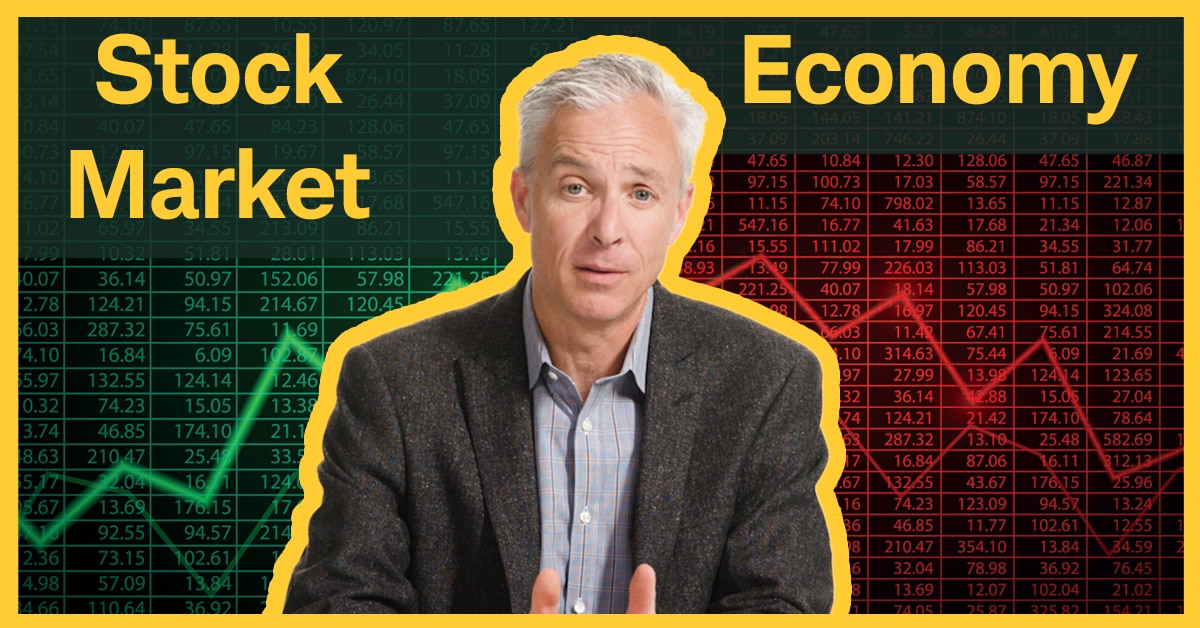1. Introduction
The stock market plays a crucial role in the development of an economy by providing a platform for the buying and selling of stocks, which represent fractional ownership in publicly-traded companies. It is a regulated public market that facilitates the capital-raising process for companies, contributing to their growth and expansion. Efficient stock markets are essential for creating a robust and competitive economy that is resilient to shocks, volatility, and lack of investor confidence. In this article, we will explore the importance of the stock market in economic development and how it impacts various aspects of the economy.
2. Relationship between Stock Market and Economic Growth
The stock market and economic growth are closely intertwined. A strong stock market is often indicative of a growing economy, while a weak stock market can be a sign of economic instability. The relationship between the stock market and economic growth can be understood by examining two key components of the Gross Domestic Product (GDP): investment and spending.
3. Role in Increasing GDP

Investment is a driver of economic growth and development. Governments formulate fiscal and monetary policies to encourage investment, as it injects money into the productive sectors of the economy. The stock market serves as a prominent source for the public to invest their money. By mobilizing domestic savings through the issuance of equity shares, the stock market allocates funds to productive sectors that require financial resources to function effectively. This flow of resources from surplus units to deficit units allows companies to expand their operations, fund new projects, invest in technology, and create employment opportunities. As a result, the rate of production accelerates, and unemployment rates decrease, leading to overall economic growth.
Rising stock markets, often referred to as bull markets, instill confidence in the future growth of the economy. The wealth effect generated by a bull market, where investment portfolios increase in value, encourages people to spend more on expensive products, thereby increasing consumer spending. This increased consumer spending creates a higher demand for goods and services, leading to increased sales and higher profits for businesses. Investors’ confidence in the stock market also makes it easier for companies to raise capital by issuing shares, as there is a demand for equity. The increased revenue generated from the stock market can also result in higher government spending, further contributing to economic growth.
4. Stock Market Liquidity
One of the key benefits of a stock market is its ability to ease liquidity shortages, thereby promoting economic growth. Liquidity refers to the ease with which an asset can be bought or sold without causing significant price changes. The stock market provides liquidity by allowing investors to modify their portfolios and sell stocks quickly and inexpensively when needed. This ability to access savings promotes investment, as investors feel more in control of their assets. Additionally, the stock market encourages banks to improve their efficiency in order to facilitate transactions, further strengthening the financial system. This liquidity also enables stock markets to mobilize resources for long-term investments through financial intermediaries, contributing to the growth of a strong financial system.
5. Superiority of Equity Financing
One of the advantages of the stock market is that it allows companies to raise capital through equity financing rather than relying solely on debt financing. Equity financing involves acquiring perpetual, non-debt, equity capital, which improves the corporate debt-to-equity ratio. The debt-to-equity ratio indicates the financial stability of a company by demonstrating the percentage of funding from debt compared to equity. A lower debt-to-equity ratio is preferable, as it signifies a lower level of debt and a higher level of equity investment. Equity financing is more secure than debt financing, as equity shareholders do not require repayment of their investment. Instead, companies can issue bonus shares or distribute cash dividends when they earn a profit. This lowers the debt-to-equity ratio and maintains investor confidence. Additionally, a lower debt-to-equity ratio reduces the risk of loan default, benefiting lenders as well.
6. Risk Diversification

The stock market positively affects economic growth by improving risk diversification through international stock market integration. Increased integration of stock markets across national boundaries reduces the level of risk through portfolio diversification. Diversification allows investors to spread their risk across different asset classes, economic sectors, and geographical locations, increasing the chances of positive returns. With international stock market integration, investors can access companies with immense growth potential across borders, leading to increased investment in diversified portfolios. This enhanced capital mobility and productivity contribute to economic growth.
7. Impact of Stock Market Crash
While the stock market plays a vital role in economic development, a stock market crash can have severe consequences. A stock market crash refers to a drastic decline in stock prices, often accompanied by panic selling and economic factors. The Great Depression in the 1920s, which originated in the United States but impacted economies worldwide, is a prime example of the devastating effects of a stock market crash. When stock market bubbles burst, it not only hurts investors but also affects the entire economy. Companies may face financial difficulties, leading to job losses and reduced employee benefits. Pension funds and retirement accounts, which are directly linked to the stock market, can also suffer significant losses. In such situations, the overall economy may experience a decline in output, severe unemployment, and deflation.
8. Stock Market and Employment

The stock market has a direct impact on employment in the economy. When the stock market performs well, companies are more likely to expand their operations and invest in new projects. This increased investment leads to job creation and reduces the unemployment rate. Additionally, the stock market enables companies to raise capital, which can be used to finance their operations and support their growth strategies. As companies grow, they require more employees, leading to increased employment opportunities. Therefore, a thriving stock market plays a crucial role in promoting employment and improving the standard of living for individuals.
9. Development of Financial Intermediaries
Efficient stock markets contribute to the development of financial intermediaries such as banks and pension funds. These intermediaries play a vital role in channeling funds from savers to investors, thereby facilitating economic growth. As the stock market grows, banks and other financial institutions become more efficient in their operations, improving the overall financial system. The presence of a well-functioning stock market encourages the development of these intermediaries, enabling them to provide essential services such as lending, investment management, and risk mitigation. This, in turn, supports the growth and stability of the economy.
10. Stock Market and Long-Term Investments
The stock market provides a platform for companies to acquire long-term investments through equity financing. Unlike debt capital, which requires repayment, equity capital obtained from the stock market does not need to be paid back to shareholders. This perpetual source of funding allows companies to focus on long-term investments and growth strategies without the burden of debt. By enabling companies to access equity financing, the stock market promotes long-term investment in research and development, infrastructure, and other critical areas. This stimulates innovation, productivity, and economic growth.
11. Conclusion

In conclusion, the stock market plays a vital role in the development of an economy. It raises capital for long-term investments, mobilizes savings, and encourages investment. The stock market contributes to the overall growth of an economy by improving liquidity, promoting risk diversification, and facilitating the development of financial intermediaries. However, it is crucial to recognize the potential risks associated with stock market crashes and their impact on employment and the overall economy. By understanding the significance of the stock market and its relationship to economic development, policymakers, investors, and individuals can make informed decisions that contribute to sustainable economic growth.
